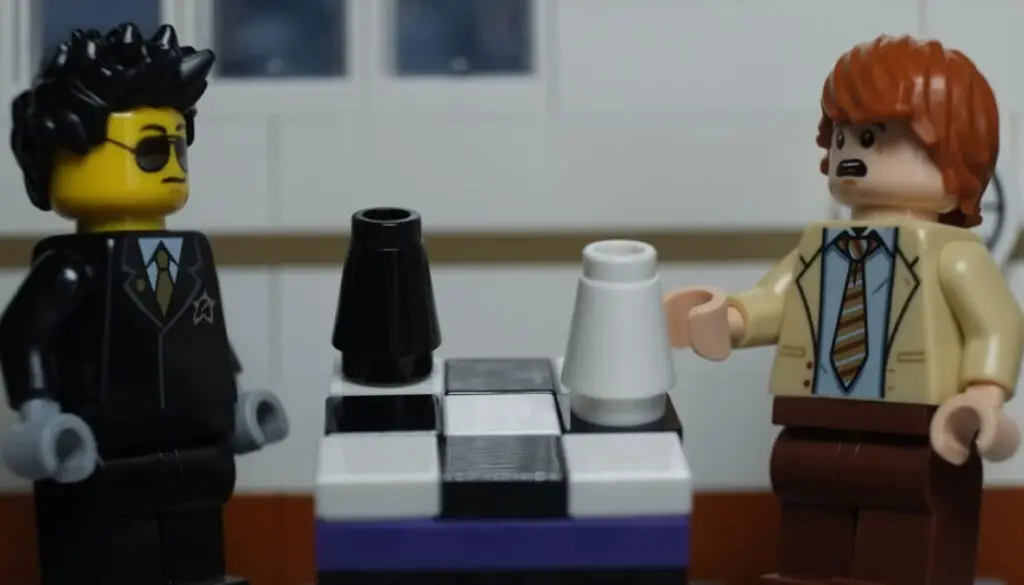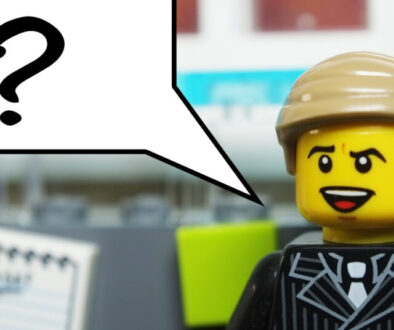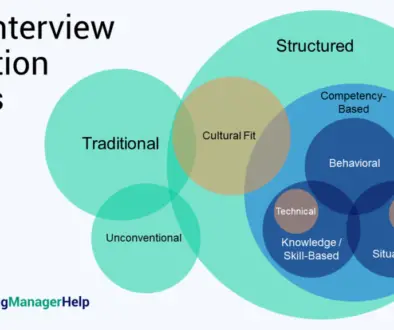Top 14 Strategic Thinking Job Interview Questions To Ask
- Why These Questions?
- 1. To your knowledge, how would you define ‘strategic thinking’?
- 2. In your opinion, for this job, is the trait of creativity or efficiency more crucial?
- 3. Tell me about a time where you had to create a plan for a long term project. What was your process for creating this strategy?
- 4. Describe a time when you set goals for a team. What were they and how did your team react?
- 5. Describe a situation where you had to make an unpopular decision. How did you handle the stakeholders involved?
- 6. Describe a time when you had to choose between a number of different options in order to achieve a particular result.
- 7. Describe the top work-related ideas or project ideas that you have come up with and/or implemented.
- 8. Describe a time when you intricately understood how business worked at the company you were in, and how that helped you improve the success of the company.
- 9. Describe a time when you had a good plan to start with, but had to change the plan partway through the execution process.
- 10. Describe a time when you made a wrong decision because you made the decision too quickly. What happened and what went wrong?
- 11. If you are appointed to this position, what type of goals would you set for yourself, and why?
- 12. Currently, our company’s goals are [blank]. How would this role contribute to achieving these goals?
- 13. Imagine this scenario: You are working in a business unit of a company. One day…
- 14. Imagine this scenario: You are working in the B2B sales department of a vending machine manufacturer. You and…
- Couldn’t Find The Question You Are Looking For? We Got You Covered
If you are looking for a quick list of job interview questions to test for your interviewee’s strategic thinking skills, check out this list below. You probably can’t go wrong with asking these questions the next time you interview a job candidate.
Top fourteen strategic thinking job interview questions to ask job candidates:
- To your knowledge, how would you define ‘strategic thinking’?
- In your opinion, for this job, is the trait of creativity or efficiency more crucial?
- Tell me about a time where you had to create a plan for a long term project. What was your process for creating this strategy? What did and didn’t go as planned? What would you do differently?
- Describe a time when you set goals for a team. What were they and how did your team react?
- Describe a situation where you had to make an unpopular decision. How did you handle the stakeholders involved?
- Describe a time when you had to choose between a number of different options in order to achieve a particular result.
- Describe the top work-related ideas or project ideas that you have come up with and/or implemented.
- Describe a time when you intricately understood how business worked at the company you were in, and how that helped you improve the success of the company.
- Describe a time when you had a good plan to start with, but had to change the plan partway through the execution process.
- Describe a time when you made a wrong decision because you made the decision too quickly. What happened and what went wrong?
- If you are appointed to this position, what type of goals would you set for yourself, and why?
- Currently, our company’s goals are [blank]. How would this role contribute to achieving these goals?
- Imagine this scenario: You are working in a business unit of a company. One day you learn that your competitor has just released a new product. This comes as a surprise to everyone and you had no prior knowledge of this. How would you or your team respond?
- Imagine this scenario: You are working in the B2B sales department of a vending machine manufacturer. You and your team had recently closed a deal to sell and deliver three hundred (300) vending machine units to a new business client. However, two weeks before the proposed delivery date, the operations team tell you that they will not be able to produce the full three hundred (300) units by the delivery date. What would you do?
Below, we have detailed more about each individual question, including the purpose of the question and what to look out for.

Why These Questions?
Before we dive into the questions themselves, we need to first understand why we are asking these questions and what makes them able to test for strategic thinking.
Strategic thinking is the process of deciding on and executing a plan to achieve a certain goal.
Strategic thinkers are able to identify, assess and solve problems. They are able to make decisions that lead to long-term success. They can also come up with plans or ideas that will help the company achieve its goals.
Paradoxically, strategic thinkers must be able to think creatively and analytically at the same time.
Therefore, the following questions will test for forward-thinking traits, in relation to big and long-term ideas and solutions.
1. To your knowledge, how would you define ‘strategic thinking’?
This first question here is also one of two knowledge/skills-based questions on the list. This question is a simple and straightforward question to ask what the interviewee conceptually understands about strategic thinking. They might give insightful and interesting ideas about strategic thinking that even you might not have thought about.
An easy red flag to look out for will be if the interviewee doesn’t know much about strategic thinking of gives a basic textbook answer.
This question gives interviewees, who haven’t been in strategic leadership positions, the chance to give their take on the matter without having to draw on experience that they might not have.
Beware, however, of interviewees who can ‘talk the talk’ and give the most amazing sounding theoretical answers, but cannot back them up with any practicality or who cannot ‘walk the walk’.
See the full details of this question here.
2. In your opinion, for this job, is the trait of creativity or efficiency more crucial?
This is another knowledge/skills-based question, but this time the answer is dependent on the job.
This question will be able to test how much the interviewee understands the role, and also the context surrounding the role. You will be to evaluate whether the interviewee’s priorities (in terms of creativity or efficiency) match what is planned for the job.
At the same time, you will also be able to evaluate the interviewee’s analysis of the trade-offs between creativity and efficiency, and their thought process behind their answer. This is probably more important as it is this thinking that drives strategic thinking. Seeing a sample of the interviewee’s thinking here and give you an idea of their wider strategic thinking skills.
You can evaluate if their reasoning within context is sound or not, and whether their strategic thinking is realistic or not either. Use simple follow-up questions, like ‘why’ or ‘how’, after their initial answers can reveal a lot more.
See the full details of this question here.
3. Tell me about a time where you had to create a plan for a long term project. What was your process for creating this strategy? What did and didn’t go as planned? What would you do differently?
This question is the first of the behavioral interview questions on this list.
Planning and strategizing for long-term projects will require strategic thinking. Therefore, if the interviewee has successfully handled large projects in the past, it is likely that they have strategic thinking skills.
Strategic thinking doesn’t always have to be big-picture, company-steering, mission and vision stuff. Even small but complex and important projects are good enough for showcasing strategic thinking. Such projects will require similar trains of thought, and if an interviewee can handle planning in long-term projects, they could potentially scale up their thinking and handle larger projects or company-wide planning.
Therefore, when evaluating answers, don’t just look for the results of the project, but focus on the process, decisions made, and turning points in the project. I.e. the contributions that the interviewee made to the project plan. These will give a better idea of the candidate’s thinking.
See the full details of this question here.
4. Describe a time when you set goals for a team. What were they and how did your team react?
This question can be seen as testing two separate things. One is the interviewee’s practical strategic thinking skills in a small team setting. The other is the interviewee’s leadership skills in getting others to follow their lead.
Strategic thinking does just happen in a vacuum. Setting a context around a question about strategy can help to test for the practical aspects of strategic thinking. Some people can have great but ultimately unfeasible ideas, and we don’t want that.
Another practical aspect of strategic thinking is the skills related to it. In this case, it is getting others to follow through with the plans resulting from strategic thinking. The best plans are useless without the people to take action on them.
If an interviewee was able to strategically think of plans for a team and get the team to execute that plan, then they should be able to do so again in your organization.
See full details of this question here.
5. Describe a situation where you had to make an unpopular decision. How did you handle the stakeholders involved?
Similar to question 4 above, this question looks at the practical aspects of strategic thinking and decision-making. In this case, deciding on plans that go against popular opinion.
Not all rational and strategic plans are going to sit well with everyone. Differing emotions and agendas are going to get in the way of the objectively best plans and strategies.
This question tests if the interviewee has the guts to make a strategically good decision, the guts to stick with it, and hopefully even convince others of the merits of the plan.
See full details of this question here.
6. Describe a time when you had to choose between a number of different options in order to achieve a particular result.
On the surface, this question seems like too simple a question by just getting the interviewee to recall a time they had to make a decision. However, with the right follow-up question, you can test for the quality of the interviewee’s strategic thinking skills instead.
The key follow-up question would be “why did you make that decision?”. From there, a good interviewee will be able to explain their analysis of their options. Watch out for things like cost-benefit analysis, big-picture thinking, and other mental models that are the hallmarks of good strategic thinking.
If you want to take things further, you can play devil’s advocate and ask about the decisions not selected and why they were not selected.
Going in-depth in your follow-up questions can help to really reveal how the interviewee thinks and make decisions, and how well they can think strategically.
See full details of this question here.
7. Describe the top work-related ideas or project ideas that you have come up with and/or implemented.
This is a simple behavioral question that could be used as a ‘starter’ or a ‘beginner’ question just to gauge the strategic thinking skills and background experience of the candidate.
You may not always know what level of strategic thinking the interviewee might have experience with, so this question is a good way to start the discussion and also to roughly determine the interviewee’s base level of strategic thinking experience, and by extension their skills.
From there, you can choose to continue asking for details in the interviewee’s answer to this question or ask more questions on this list.
See full details of this question here.
8. Describe a time when you intricately understood how business worked at the company you were in, and how that helped you improve the success of the company.
Similar to the questions above, this question is putting strategic thinking into context.
The idea here is that strategic thinking cannot be done without having a good idea of how the organization works at a macro level. In this question, you should be looking out for if the interviewee has the ability to understand their work context, and how that understanding impacts their strategic thinking and decision-making.
This doesn’t just apply to high-level jobs either. A junior professional who can understand how their role fits into the wider picture of the organization would be more desirable than one who doesn’t understand.
See full details of this question here.
9. Describe a time when you had a good plan to start with, but had to change the plan partway through the execution process.
This question tests the interviewee’s ability in practical strategic thinking, namely the ability to readjust plans when the need arises.
To borrow an old saying, few plans survive the first battle. The need to adapt to survive is always present. You want a candidate who can navigate between knowing when and how to change their plans when things change on one end, and not constantly changing things too much and sticking to the initial plan on the other end.
If the interviewee can demonstrate that they navigated changes in the past, they are likely to have good strategic thinking skills and would be able to navigate future difficulties.
See full details of this question here.
10. Describe a time when you made a wrong decision because you made the decision too quickly. What happened and what went wrong?
It is always well and good to talk about positive examples and how things go well. It is harder to talk about negative experiences and mistakes made.
If someone has been in a line of work where decisions and plans constantly have to be made, it is inevitable that mistakes will be made. This question allows the interviewee to relate their real-life experience, wrong turns and all, and most importantly what they learned along the way.
If the interviewee has no mistake to talk about, either they are hiding something, have a warped sense of reality, or haven’t been in their line of work long enough for such things to have happened which would indicate a lack of experience.
See full details of this question here.
11. If you are appointed to this position, what type of goals would you set for yourself, and why?
This is the first of the scenario-based interview questions on this list. In this case, it is a simple scenario of the interviewee’s idea of what strategic thinking would look like on the job.
Scenario-based questions like this give the interviewees who haven’t had the chance to fully utilize their strategic thinking skills in past jobs to explain what they would do given the chance.
Another benefit of this question is that it can be used for jobs of any level. Even junior positions can benefit from the strategic thinking that comes with personal goal setting.
Lastly, this question has the secondary benefit of testing if the interviewee has a good understanding of the job itself and the wider context that this job fits into.
See full details of this question here.
12. Currently, our company’s goals are [blank]. How would this role contribute to achieving these goals?
Despite how it reads, this is a scenario-based question. You can fill in the blank with your organization’s actual goals, or give a totally fictitious goal. Either way, it will be a challenge for the interviewee to think about strategic thinking within a given context.
This is a good question to see if their understanding of your organization actually matches with reality. The best case would be where the interviewee has thought of ideas that even people in your organization haven’t thought of yet. The worst case would be if the interviewee has a totally wrong perspective of what the job entails and what your expectations are.
Secondarily, you are checking to see if the interviewee has ‘done their homework’. The more they have researched and studied your organization, the more likely they will answer this question well.
See full details of the question here.
13. Imagine this scenario: You are working in a business unit of a company. One day you learn that your competitor has just released a new product. This comes as a surprise to everyone and you had no prior knowledge of this. How would you or your team respond?
As the question suggests, the interviewee should be able to come up with a plan of action based on the scenario. It does look as if this question is skewed slightly to business or competition related roles. However, at its core, the question presents an external force as a challenge to effective strategic thinking. How well the interviewee comes up with solutions or options to overcome this challenge will demonstrate their strategic thinking ability.
The interviewee may come up with more common-place solutions to the challenge. These are not necessarily bad as long as they are sensible. You can also further challenge the interviewee by asking follow-up questions that modify or ‘progress’ the scenario. For example: “What if the competitor’s new product starts to outsell yours? What would you do?”.
See full details of the question here.
14. Imagine this scenario: You are working in the B2B sales department of a vending machine manufacturer. You and your team had recently closed a deal to sell and deliver three hundred (300) vending machine units to a new business client. However, two weeks before the proposed delivery date, the operations team tell you that they will not be able to produce the full three hundred (300) units by the delivery date. What would you do?
Similar to the question above, the interviewee should be able to come up with a plan of action based on the scenario. The question looks like it is skewed slightly to a business context, however, it can be modified to be used for any strategic thinking role. This is because, at its core, this question presents an internal force as a challenge to effective strategic thinking. It could be a production limitation, like in this case, or it could be any other internal issue that is preventing a goal from being reached.
How well the interviewee comes up with solutions or options to overcome these challenges will demonstrate their strategic thinking ability. The interviewee might come up with commonplace answers, but these are fine as long as they are sensible.
Your job as the interviewer will be to rate if the solutions proposed in the interviewee’s answer are practical, workable, and the most effective given the circumstances.
See full details of the question here.
Couldn’t Find The Question You Are Looking For? We Got You Covered
The questions featured on this list were handpicked by me to fit most strategic thinking related roles. They should work in most situations, but, they might not fully suit your vacancy or general situation.
As a solution, you could modify the questions here to suit you or you can take a look at the full list of strategic thinking related questions in our interview question bank. You should be able to find what you are looking for there.
Sources
No sources for this article. This was written based on my experience on the interview questions in our interview question bank.




